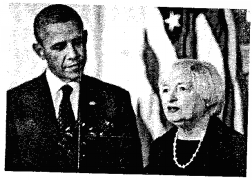题目内容
11.Parents do need to teach their kids financial responsibility and that money is earned.Still,many child-development experts agree that tying a child's pocket money to chores(琐事) can be a slippery slope.Here's why.Susie Walton,master instructor at Peace in Your Home advises to keep chores and pocket money totally separate."Pocket money is one thing.When it comes to chores,life skills,responsibilities-that's a whole different thing."says Walton.
Walton says,"When kids aren't doing a chore,you don't say,‘well,there goes your pocket money.'You're going to sit them down and ask what's going on.‘We are a team.We are a family.We've got to have them done.'"
Besides,by paying children for chores with pocket money,you'll also be sending the message that work isn't worth doing unless they're getting paid for it.
There are times when it would make sense to pay kids for chores.Most financial and child-development experts agree that it's a fine idea to pay children money for extra jobs that are outside their normal set of chores,such as washing windows,washing the car or helping to clean out the garage-especially if the child is saving for a big item.This may even develop an entrepreneurial (企业家的) spirit to think outside of the box to earn money.
For parents who are concerned that their children won't learn the value of a dollar if the pocket money isn't tied to household chores,note that there are still plenty of money management skills to be learned from a straight allowance.Depending on the age,kids can be made responsible for paying for their own toys or snacks.Some parents even require that kids set aside a percentage of their pocket money toward savings.
"I really like having my own money,"says Kevin,9"It's up to me if I want to buy the cheap toy now,or save and get the better toy."And that's a good lesson to learn at 9years old.
No matter which pocket money route you take in parenthood,kids will feel empowered by being able to handle their own money.
24.According to Susie Walton,if kids don't do chores,parents shouldB.
A.teach them the entrepreneurial spirit
B.talk to them about family responsibilities.
C.give them a smaller pocket money than usual
D.order them to give a reasonable explanation
25.In Paragraph 6,"a straight allowance"probably means"D".
A.money given by charity organizations
B.money earned by doing part-time jobs.
C.money earned by doing everyday household chores
D.money given by parents and not dependent on chores
26.What is the author's attitude towards Kevin's action?C
A.Worried.
B.Doubtful.
C.Approving.
D.Unfavorable.
27.The text is mainly aboutB.
A.the importance of kids doing chores
B.whether parents should pay kids for chores
C.Whether it is good or bad to give kids pocket money
D.whether parents should give kids regular pocket money.
分析 本文为科教类阅读,通过多人的观点,讨论了父母该不该让孩子做家务这个问题,以及如何处理做家务与给零花钱之间的关系.
解答 24---27 BDCB
24.答案B.细节理解题.根据第三段"When kids aren't doing a chore,you don't say,'well,there goes your pocket money.'You're going to sit them down and ask what's going on.‘We are a team.We are a family.We've got to have them done."可知,当孩子不愿意做家务时,父母应该和孩子谈论家庭中个人的责任问题.故选B.
25.答案D.词义猜测题.a straight allowance直接的零用钱,指父母直接给孩子的零用钱,而不是孩子通过做家务换取的.故选D.
26.答案C.观点态度题.根据文章倒数第二段"And that's a good lesson to learn at 9years old"可知,作者对Kevin的举动是赞成的.故选C.
27.答案B.主旨大意题.通过全文及第一段"many child-development experts agree that tying a child's pocket money to chores(琐事) can be a slippery slope.Here's why."可知,文章通过多人的观点,讨论了父母该不该让孩子做家务这个问题,以及如何处理做家务与给零花钱之间的关系.故选B.
点评 科教类阅读文应对策略:
1、要想做好科普英语阅读理解题,同学们就要注意平时多读科普知识类文章,学习科普知识,积累常见的科普词汇,从根本上提高科普英语的阅读能力.
2、要熟悉科普类文章的结构特点.科普类文章一般由标题(Head line),导语(Introduction),背景(Back ground),主体(Main body)和结尾(End)五部分构成.标题是文章中心思想高度而又精辟的概括,但根据历年的高考情况来看,这类阅读理解材料一般不给标题,而要同学们选择标题.导语一般位于整篇文章的首段.背景交待一个事实的起因.主体则对导语概括的事实进行详细叙述,这一部分命题往往最多,因此,阅读时,同学们要把这部分作为重点.结尾往往也是中心思想的概括,并与导语相呼应,命题者常在此要设计一道推理判断题.
3、在进行推理判断时,同学们一定要以阅读材料所提供的科学事实为依据,同时所得出的结论还应符合基本的科普常识.

 Who is the most powerful woman in the world?According
Who is the most powerful woman in the world?According